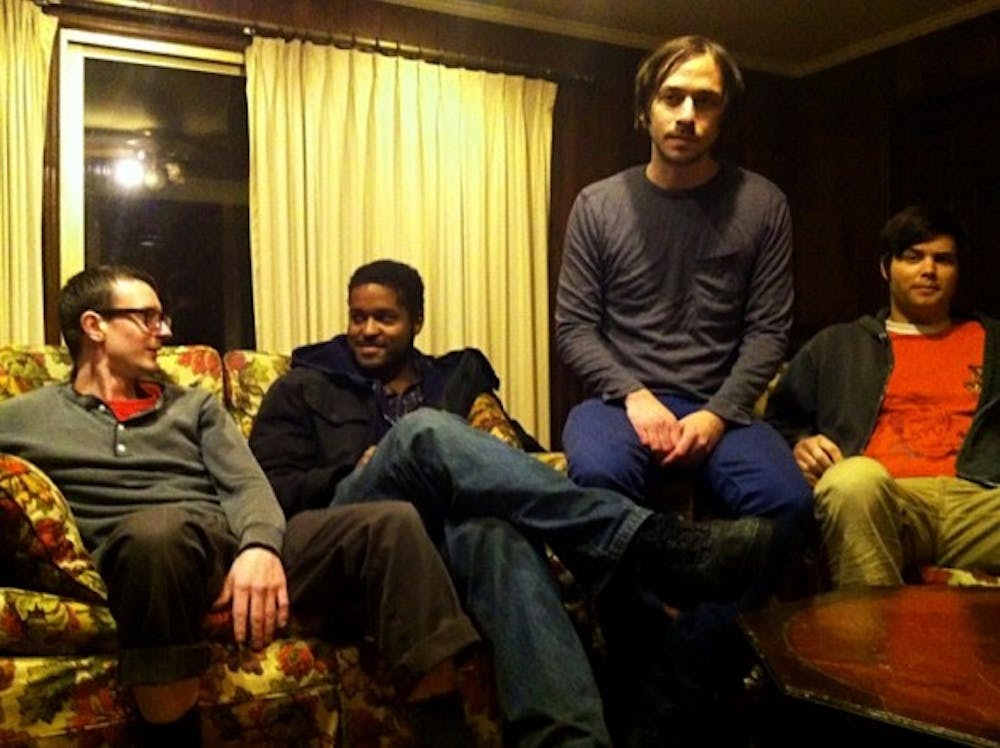Describing its sound as “nightmare pop,” Airstrip is a local band helmed by Matthew Park (formerly of Veelee) that includes artists from Caltrop, Gross Ghost and Horseback. Roughly a year after its inception, the band has finally readied its debut album, Willing. Staff writer Jay Prevatt talked to Park about the record’s atmosphere and inspiration.
Diversions: I just heard your first single “Pleasure Center.” Do that song’s themes of addiction and the rock ‘n’ roll lifestyle show up throughout the album?
Matthew Park: No, not really. A lot of the songs touch a little on themes of depression and loneliness and stuff like that, but I think that’s the only song in particular that has any reference to drug or alcohol addiction.
But that song’s not just about that. It can be about a lot of things as they relate to people trying to be happy, like taking antidepressants, or people being addicted to exercise and money and stuff like that.
I guess for me, things like depression and addiction have been themes to my own personal life, so the thing’s to write that, you know?
Not having to overthink it. But none of that was intentional per se. I don’t think many of the songs, lyrically, are super intentional. They’re all just kind of whatever it is that comes out of me, whatever I’m feeling at that moment of writing the lyrics.
Dive: You said before that sometimes, lyrically, the album doesn’t make sense?
MP: In a way. Writing lyrics is an interesting thing. Sometimes I’ll write a song and already have some lyrics in mind, or a vocal melody. Sometimes I’ll hear an entire song in my head: all the music, all the parts and some vocal melody. There are different approaches.
I’ve written hundreds of songs in my life, over a long period of time, and sometimes I don’t really concern myself too, too much with the lyrics.
It makes me feel like I’m not really being true to what’s happening inside my brain or inside my heart. So oftentimes my best lyrics will come out of like a stream-of-consciousness kind of writing, to where I won’t really know what the song’s about until I look back at it after I’ve already written it.
Then I can be like, “Oh, OK.” It’s almost like analyzing your dreams when you wake up in the morning.
Dive: You recorded the album in a home studio — can you tell me about the recording process?
MP: Ever since I was a teenager I had a four track cassette tape recorder, so recording the song is always part of the song itself to me.
You know, recording is like, the fifth instrument or whatever. It’s the crucial element to the way the song ends up feeling and sounding. I need to maintain control over that at all times.
I’ve had experiences before of going in to some stranger, where they’re at the controls, and you can make suggestions and try your best, but at the end of the day it’s somebody else turning the knobs.
It’s important to us that we’re always at the controls so that it can be exactly the way we need it to sound. So recording in a house, or anywhere we can record on our own, is crucial to the process.
To get the day's news and headlines in your inbox each morning, sign up for our email newsletters.





